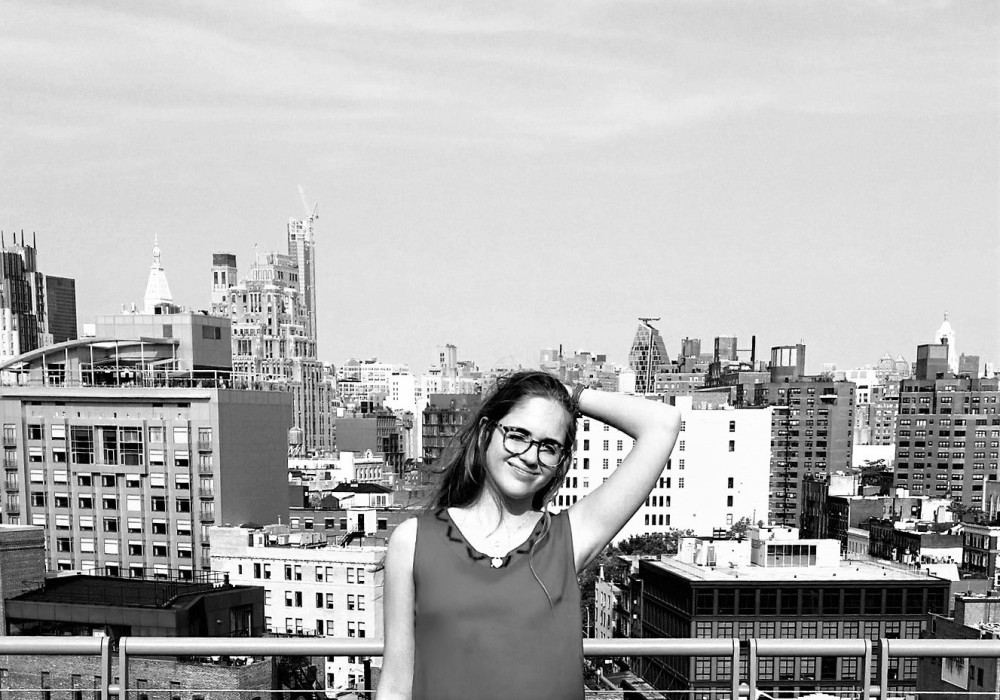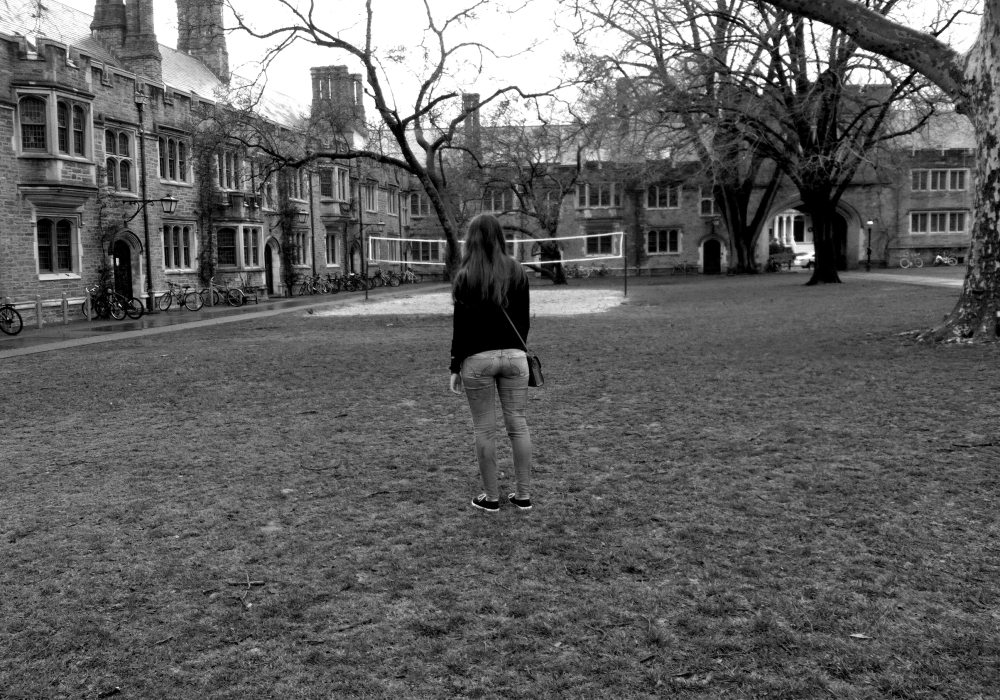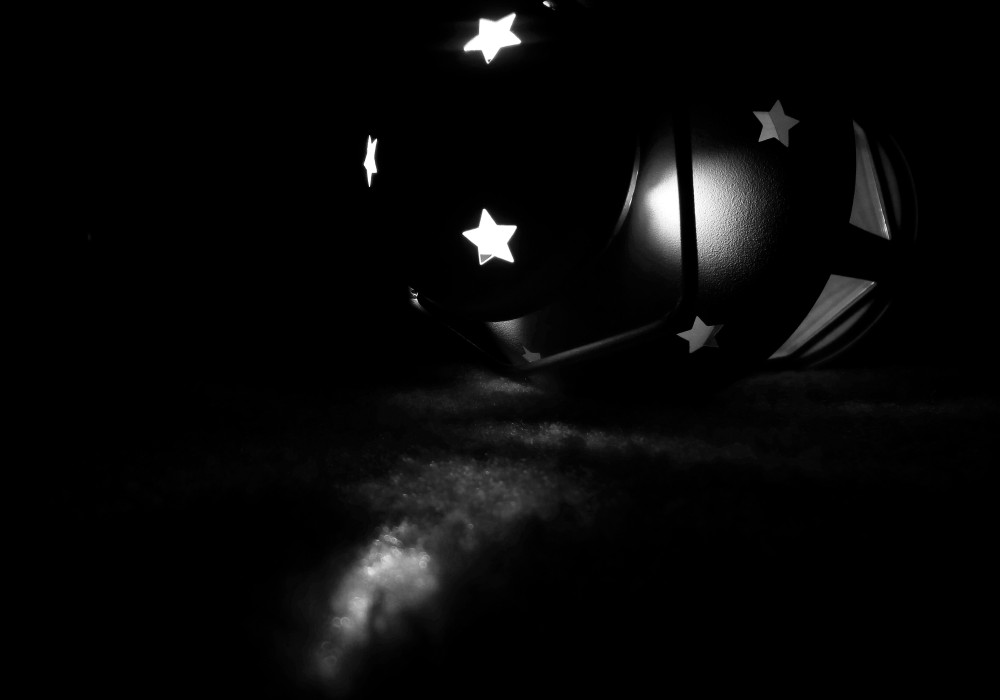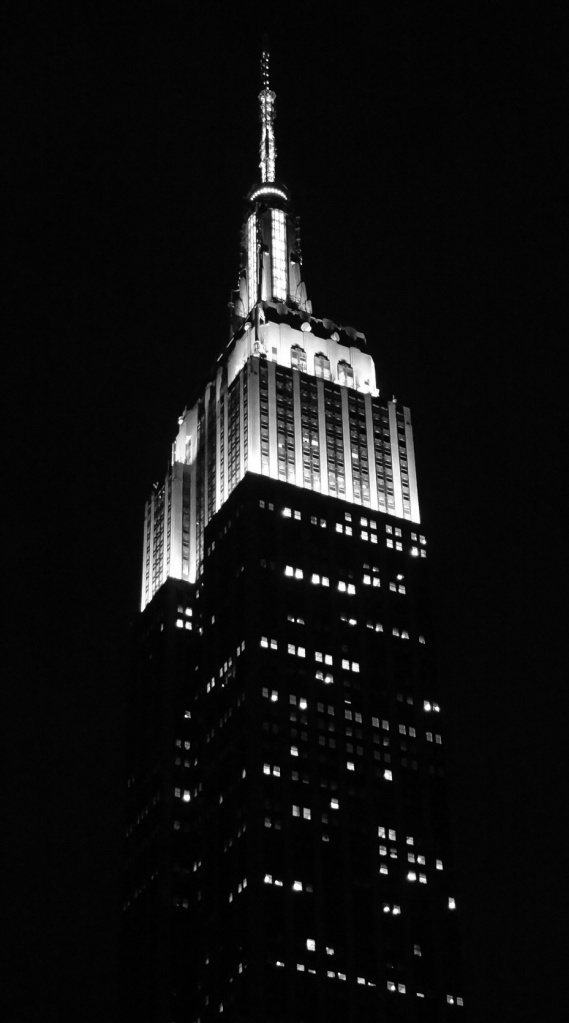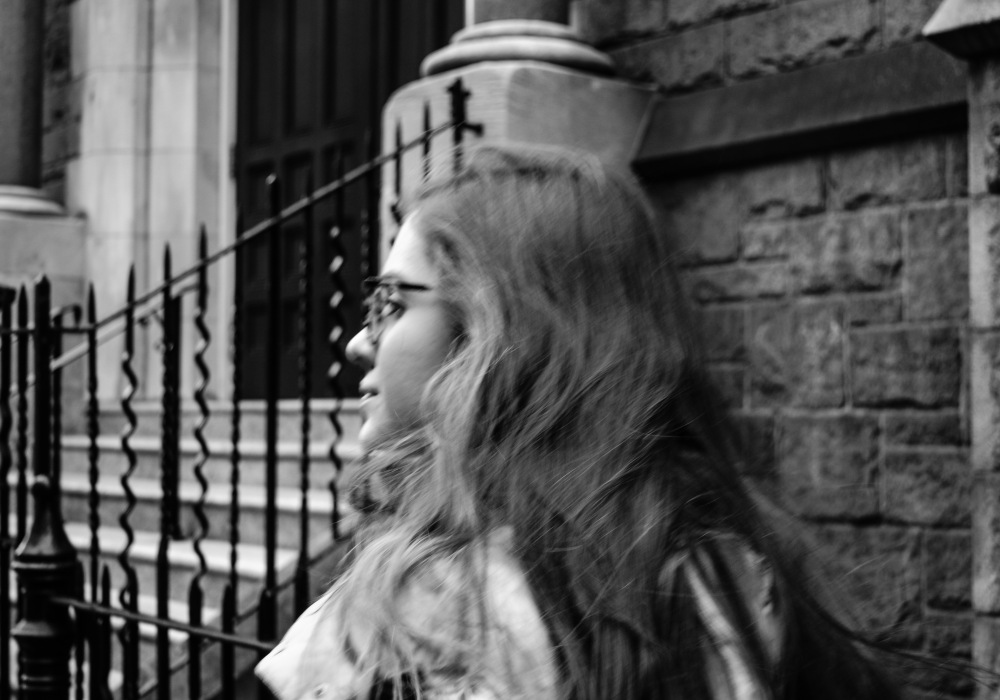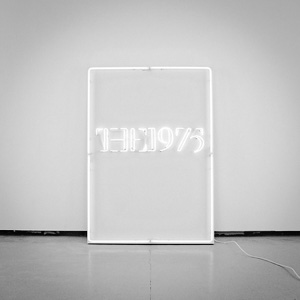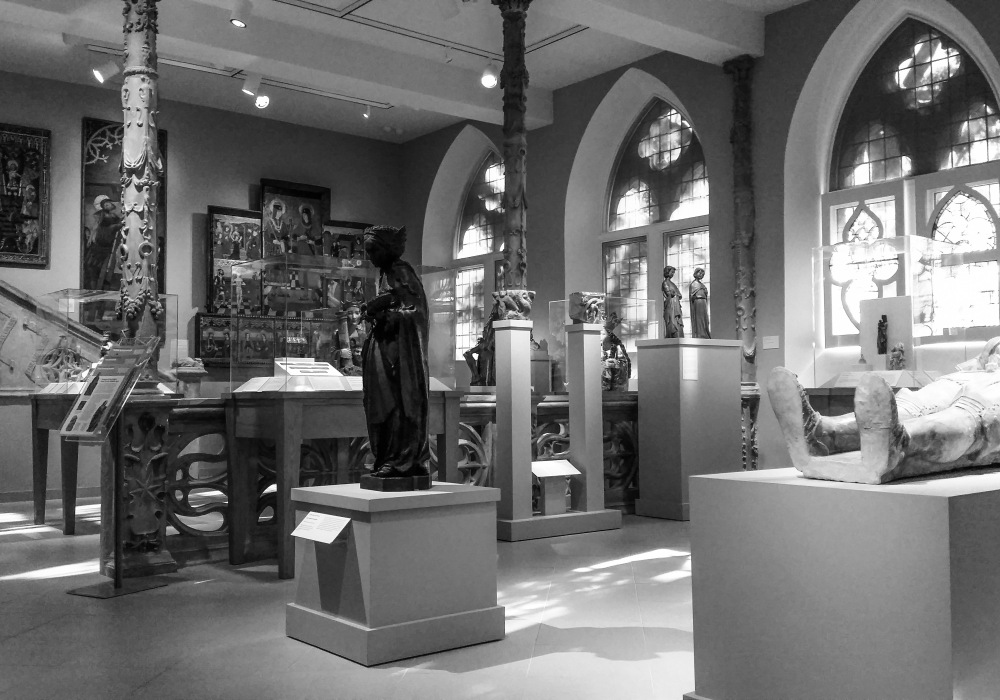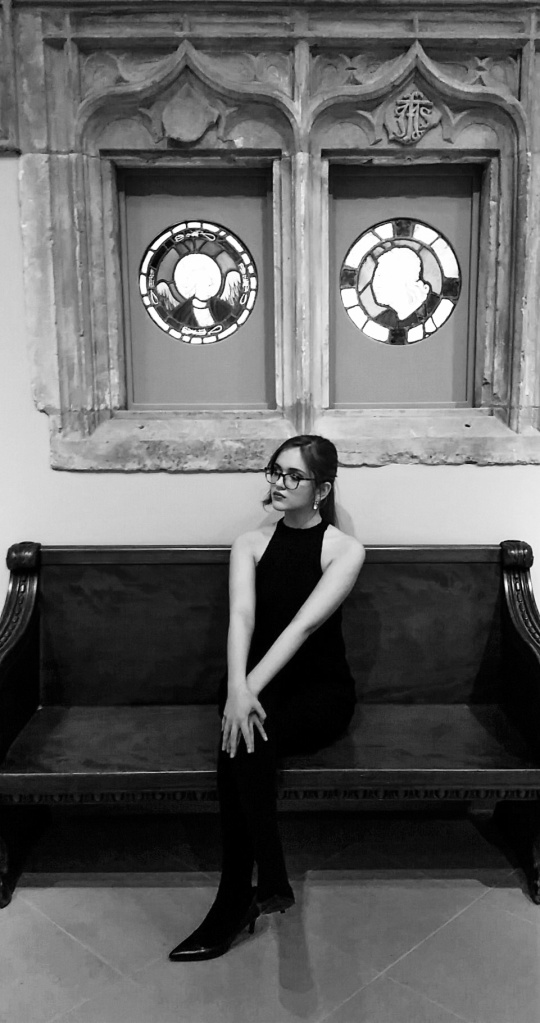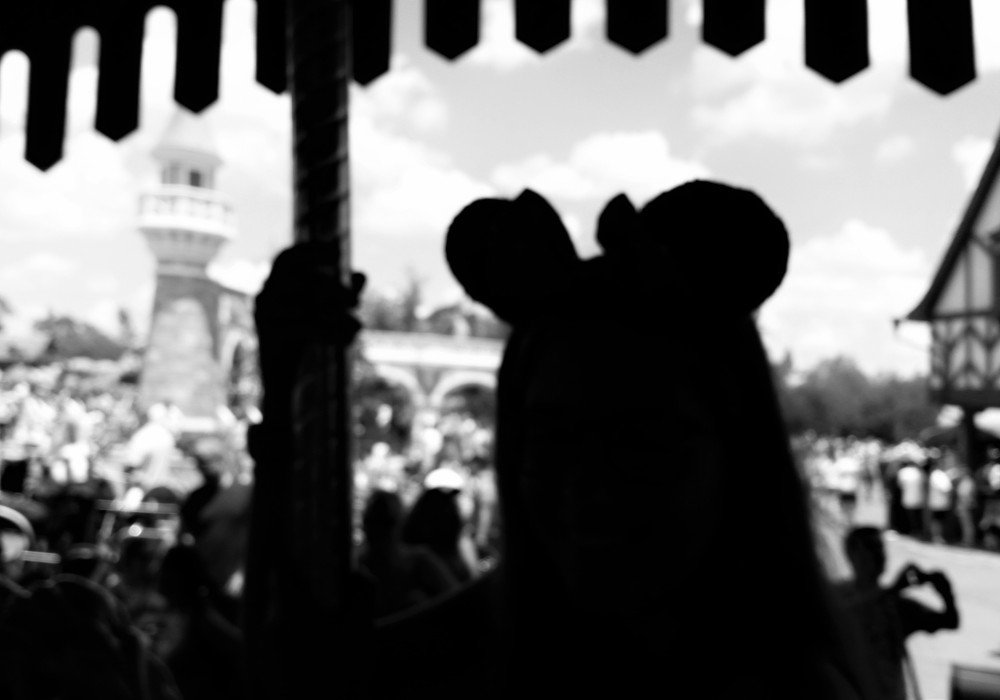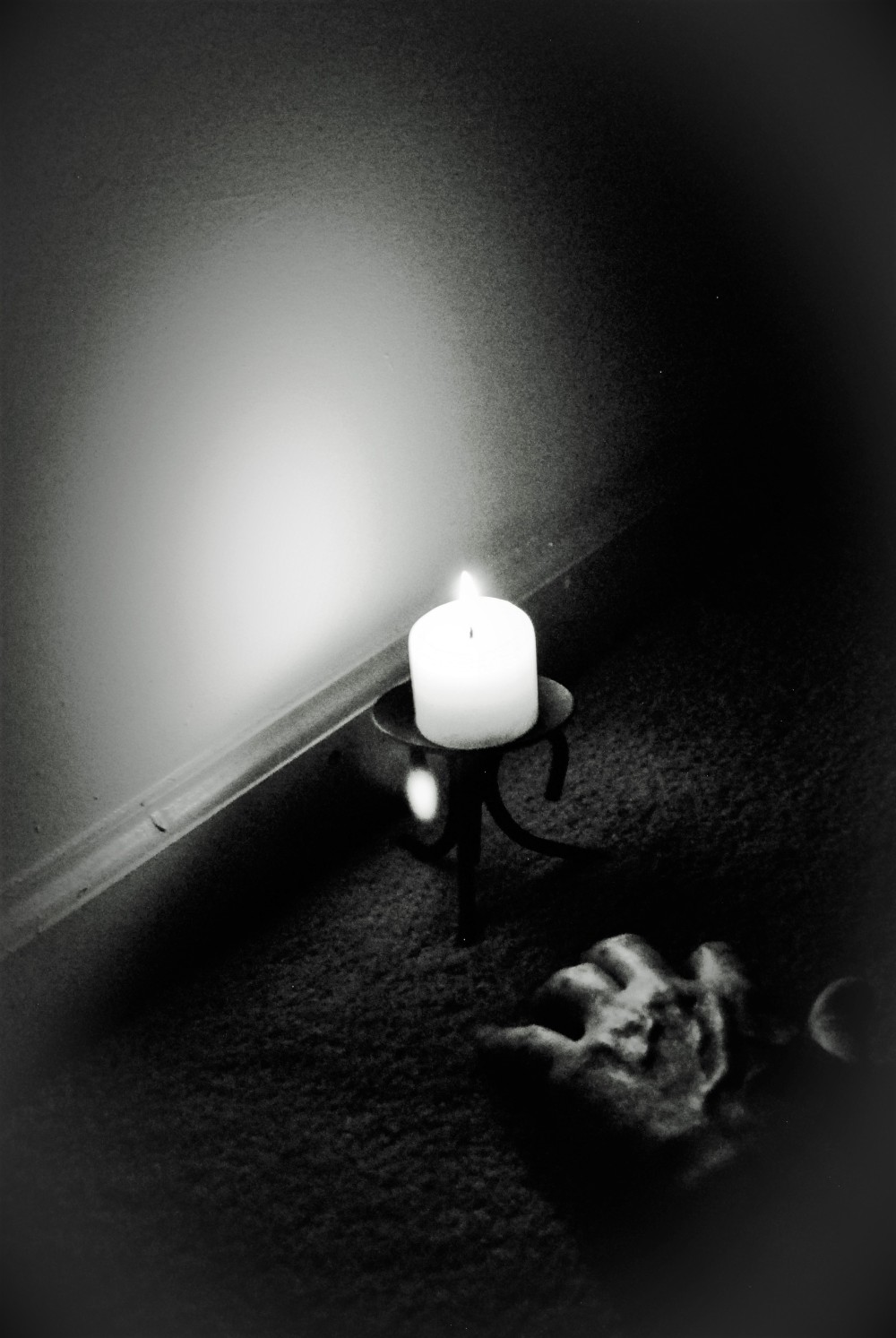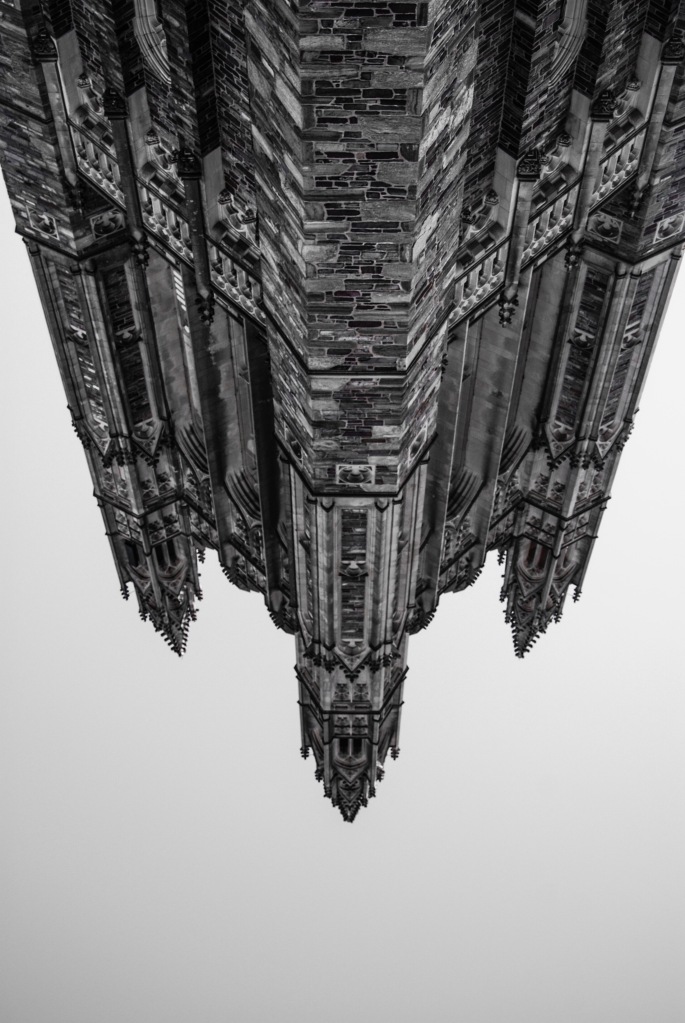
Jane St. Vince saw the ghost every Sunday. She would sit in the Princeton Battlefield, her bare calves tickled by the warm grass, her back cool against the marble colonnade she always leaned on. In her hands she cradled a book, the pages of which her long fingers turned gingerly as her eyes scanned the words in small print. Too often, she would look up and rest her gaze upon him—the ghost. He would be tucked away in the shadows, behind a column at the opposite end of the colonnade. She saw him like one saw a fading dream in their head—with a blurry sort of beauty you feared would disappear if you looked away.
Edgar Briar—as she would later come to know was the ghost’s name—sat like a statue, like an extension of the marble memorial around him. He set his chin upon his fist, and his elbow upon his knee, and stared out into the road with scrunched eyes Jane St. Vince imagined were once sharp, piercingly dark. His mouth was fixed into a sad frown. The wool brown coat of his military uniform, dating back to the Revolutionary War, was battered and unbuttoned; a dishearteningly dark stain spread on the cotton shirt underneath, on the left side of his chest, near his heart. His hat sat in tatters at his feet.
Edgar Briar had been an American soldier in the Battle of Princeton. Jane St. Vince was a graduate student in History at Princeton University.
One Sunday morning, as spring gradually sweltered into summer, Jane St. Vince realized she was remarkably excited to go to the Princeton Battlefield—an excitement that had nothing to do with the thick history textbook she would read there, or with the delicate April blooms she would feel underneath her fingers. What she was doing, or where she was, hardly mattered. No, it was what was before her eyes. The wonder of someone so intangible, of a clear tragedy that trickled down into her chilled bones. Jane St. Vince’s heart fluttered for a man who wasn’t truly there.
It was on this day that she stayed in the battlefield until the sun set—half reading her course book, A Colony of Citizens, half memorizing the hazy angles of Edgar Briar’s face. He did not acknowledge her presence in any way; he only gazed into the lush green in the distance. As the sky slowly darkened, and Jane St. Vince had to strain her eyes to read, he remained there still—staring off at the shadows, his face growing more contemplative. More sad. Jane St. Vince’s heart sunk at the thought of leaving him once night fell.
But the stars blinked into shaky existence despite her wishes. She resignedly slid her book into her JanSport backpack, smoothed her skirt, and left.
As she walked along Mercer Street, she found her thoughts drifting back to Edgar Briar. She wondered what would happen if she touched his face. She imagined her fingers slipping past his immaterial cheek as if he were made of air. Would it feel like ice? Would it feel like nothing?
She wrapped her arms around herself. Suddenly she felt cold. For no real reason other than instinct, she turned her head back. There, outlined by the yellow-orange light of a lamppost, was the ghost Edgar Briar, following Jane St. Vince home.
A soft gasp escaped her lips, although it was not fear she felt. Rather—the unexpected pleasure of seeing him outside of her head.
He regarded her with an unsaid question in his black eyes. Can I continue to haunt you? Jane St. Vince gave a little nod—I’m not scared of ghosts. She wanted to walk beside him, to watch the way his translucent form rippled into sight under every street lamp. But she didn’t want to spook him. Instead she turned around and continued walking toward the Princeton Graduate College on the shadowy, empty road. It was just she and Edgar Briar, whom she could not see, but felt acutely.
Soon the mass of Gothic stone buildings that marked the college became discernable. As they approached nearer, Jane St. Vince could pick out the rows of chimneys and the lit up bay windows; the pointed archways and the ivy crawling up the walls. The occasional turret made a gentle attempt to shoot up toward the sky, but none did so on the scale of the Cleveland Tower, which rose up dramatically toward the heavens with tapering spires that nearly dared to touch God.
When she looked back to make sure Edgar Briar was still there, she noticed he looked more in place in their surroundings than she, with his breeches and turned-up hat and his musket in his hands. She pictured him, weapon at the ready, running into Nassau Hall, where the British cowered from the American army before surrendering. She wondered how he had died in battle.
They walked through an arch and entered an outdoor corridor surrounding a darkened courtyard. Jane St. Vince’s dorm was through one of the heavy wooden doors here; she pushed it open and took the staircase up to room 202, where she lived alone and generally kept things neat, other than the multitude of books strewn upon her floor.
As she stood in front of the entrance to her room, she knew Edgar Briar was closely behind her—if he were alive, perhaps she would feel his breath upon her shoulder. She closed her eyes and pulled on the doorknob, uncertain of what was coming next. This was the first time she had invited a ghost to her room.
Edgar Briar followed her inside, seeming mildly confused by her furnishings but mostly tired. He set his musket down and sat with his legs crossed upon her floor. Jane St. Vince doubted ghosts could sleep, but he looked like he needed two hundred fifty years of rest after nearly that many years of haunting the earth. She gestured for him to lie down beside her in bed.
At first he looked hesitant, but after a few seconds she was pulling the covers over the pair of them. The fabric instantly fell through Edgar Briar’s form. This made him frown a little. He shifted his body an inch closer to her.
The two of them did not speak, did not move except for when she tentatively reached out and touched his cheek. It wasn’t cold, but it felt like nothing. Or perhaps like air that had a bit of electricity running through it.
Outside, an owl hooted. The laughter of graduate students rang in softly from time to time through the open window. And there, in room 202, beside the awake yet tranquil body of Jane St. Vince, a ghost closed his colorless eyes and slept for the first time.
The next Sunday, Edgar Briar silently followed her home again. He began to appear in her room nightly after that. It surprised her at first, to see him lying in her bed on a Monday. She wondered if he had walked through her wall or somehow just materialized. But quickly it felt natural, having him there. At the end of each day she longed to return to her room, to see Edgar Briar in his beautiful translucence, to lie down beside his immaterial body upon her bed.
She had loved him since the curious instant she saw him on the battlefield. But she had not noticed her own sentiment—he was, after all, a ghost. Now, there was no way of denying the way she felt.
Jane St. Vince was in love with Edgar Briar.
One day she asked the question that had been lingering in her mind: “What is your name?” The words felt odd floating around the pair of them—they, who were so silent with each other, who used their tense proximity to communicate instead.
His voice was low, yet hoarse and wispy, as though it were coming from somewhere beyond his throat. “Edgar Briar.” He cleared his throat. “And yours?”
“Jane St. Vince.”
Tears began to well in his eyes. “That was the first time I’ve ever spoken—since… the end.”
Gently she held her hand just above his cheek. Not being able to touch him frustrated her—she wanted her fingers to feel something other than air. He looked at her with wet eyes, and there she saw a softening—a deep-rooted sentiment she had only glimpsed flickers of before.
His shimmering tears vanished as soon as they fell from his face. He brought his ghostly hand up to hers.
“Do not look at me with such sorrow. What awaits me, Jane, does not await you. You will not have to live this drawn-out fate that God has chosen for me. You will not leave this life before your time, wanting for something you departed too young to achieve. No, you will die old, and satisfied.”
Here she drew a shaky breath—she, too, had begun to cry. “How could I ever die satisfied if that means I would have to leave you?”
He looked pained. “Because I would leave you before you left me,” he said, glancing away. His face had become as thoughtful and sad as it had been in the Princeton Battlefield. “The prospect of a life unlived will not haunt you. You will find love—normal, mortal love. You will find fulfillment, even if that means I must get away from you.”
A little, hurt whimper escaped Jane St. Vince’s lips. “What are you talking about? What we have is strange, beautiful. I would want for you endlessly if you were to go away.”
Edgar Briar shook his head. “I am merely a ghost. You would forget me with ease. And my cursed fate does not await you. Is that not far more beautiful?”
Jane St. Vince imagined what it would be like to be a ghost. Would she be able to touch him? Could her hand lock with his?—when night fell, and they ran together through a dark, lush grove until the end of time.
She was not afraid of ghosts. She was afraid of an eternity without one.
The Cleveland Tower was most breathtaking in late afternoon, when the sun’s slanting rays made glorious the warm brown stone of the surrounding university, the emerald green of the golf course facing the Graduate College and the leaves of the summer trees.
It was here, at the very top, that Jane St. Vince stood, feeling the light May wind tousle her shoulder-length hair. The dizzying height to which she had climbed did not faze her. In fact, she pictured herself taking flight and remaining suspended there, in the clear blue sky until it deepened purple, then to the black of night. She wondered if she would feel weightless, like Edgar Briar must feel as a ghost.
Jane St. Vince had always been in the habit of imagining these things. One thing she could not imagine, however, was heaven. Was it a gilded land in the clouds, where everything you wanted to happen happened as long as God gave His seal of approval? Or was it a vast field you followed Jesus around? She could not see the appeal of entering the gates of heaven if she could not enter with Edgar Briar—cast away to earth for all eternity.
It was perhaps more comforting to think that when you died, all went black. For at least that way, when her wrinkly corpse was in a box under the ground, she wouldn’t be cognizant of her being forever separated from him.
But she thought of leaving him behind—of his ghost roaming the world aimlessly, alone. And she thought of him leaving her behind, so she could grow old and resign herself to satisfaction.
She leaned forward, against the intricate stone wall that stood between the sky-reaching spires. She fancied she could see the rippling form of Edgar Briar below her, on a bench overlooking the rolling hills of the green that stretched out to Forbes College.
The tower on which she stood was one hundred seventy three feet tall. There were an infinite number of moments in which she would have to be without Edgar Briar if one of them let the other go.
One hundred seventy three was far less daunting than infinity.
♦ ♦ ♦
Whispers tell that, if you look carefully, you can see the ghosts of Edgar Briar and Jane St. Vince on Sunday afternoons, on the Princeton Battlefield. They sit upon the marble colonnade—he, leaning against a marble column and looking down fondly at her. She, lying in his lap while she holds open a history textbook above her head. His tattered, eighteenth century hat sits on her white Keds. The dark stain over his heart has dried.
